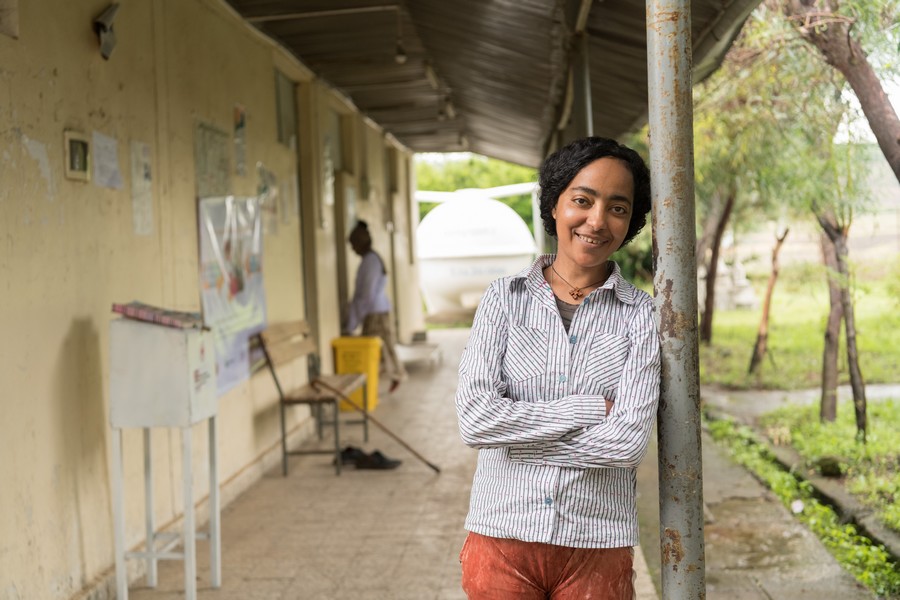As in many countries, menstruation is often a taboo topic in Ethiopia. Seventy percent of young Ethiopian girls have never heard of menstruation until they experience it for the first time. Even when informed, they sometimes struggle to manage their periods hygienically – and without a significant amount of stress. Care France and Care Ethiopia, supported by AFD, are working in a number of regions to raise awareness and improve access to sustainable menstrual products and suitable sanitary infrastructure.
Improved Support
In Adama, a town south of Addis Ababa, the project has enabled schools to better support girls during their menstrual periods. “Previously, girls would miss class without explanation because of their menstruation,” says Ayelu Mengistu, a teacher at Adama Boset Secondary School, who can attest to the project’s positive impact on girls’ school attendance. “But now, with access to emergency sanitary towels, painkillers, and even hot tea, they can attend school with peace of mind.”
Further reading: Making menstrual hygiene safer and more sustainable
Indeed, dedicated menstrual hygiene rooms have been set up in schools, allowing girls to rest if they are in pain, change if they have leaks, and access information at any time.
The toilets have also been renovated, providing the girls with improved sanitary conditions. an appropriate level of hygiene. “Previously, the school toilets were unhygienic, smelled very bad, and were unpleasant to use,” says Marshaye Fsha (in photo above), a pupil at Geda Kilole Elementary School. “Now that they’ve been completely renovated, I feel comfortable using them.” The girls also have facilities to dispose of their sanitary towels and wash their hands.
Deconstructing Prejudices
Simultaneously, awareness-raising sessions were conducted in schools, health centers, and the industrial park to dismantle the taboos and prejudices surrounding menstruation. These sessions involved fathers, uncles, brothers, and cousins. Rahel Gebrehiwot, a nurse at the Mukeiya Haro Health Center, emphasizes the importance of including both women and men: “Including men in such initiatives benefits the women in their families. Sometimes women have no source of income, so it’s essential that men support them in purchasing sanitary protection.”
The information sessions can go a long way in changing behavior. “Before I took part in the program, my friends and I used to make fun of girls during their periods if they had a stain on their clothes, mainly out of ignorance,” says Surafel Ketaw, a pupil at Geda Kilole Primary School. “Today, I have a better understanding and want to support the girls in any way I can.”
Supporting the Entire Production Chain

The project also includes subsidized distribution of reusable sanitary towels, and providing support for the local distribution chain. Women who have used these products are thrilled. “Not only has it reduced my expenses, but it has also improved my comfort, especially on hot days,” says Selam Tsegaye (in photo above), who works as a cleaner at the Mukeiya Haro Health Center. “And it’s more hygienic!”
Following this initial pilot project, AFD is also working through a public-private dialogue platform to develop a national production chain.
This aims to produce more affordable and biodegradable products tailored to the needs of Ethiopian women.
Photos : © Maheder Haileselassie Tadese / AFD
Source link : https://www.afd.fr/en/actualites/awareness-action-transforming-menstrual-hygiene-ethiopia
Author :
Publish date : 2024-05-27 07:00:00
Copyright for syndicated content belongs to the linked Source.





